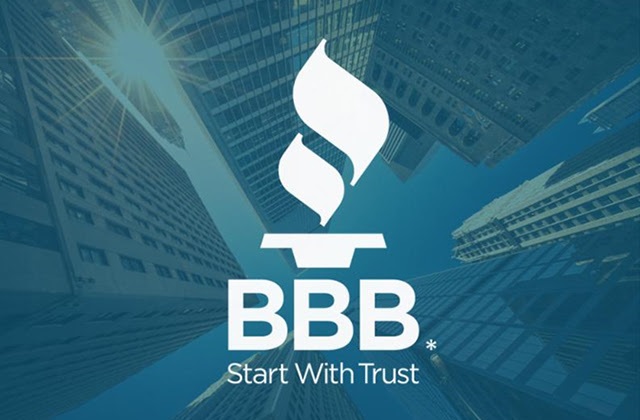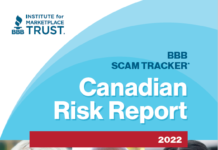WITH March marking Fraud Prevention Month, Better Business Bureau released the 2021 BBB Risk Report announcing the top 10 riskiest scams. Scam risk ranges across age groups and affects each group differently. Below is a breakdown of how the top 10 riskiest scams of 2021 broke down across age groups in North America.
Ages 18-24
-
Online Purchase Scams
-
Employment Scams
-
Investment Scams
BBB research shows that 59.8% of North Americans (53% of Canadians) are shopping online more, and 46.4% (56% of Canadians) spend more time browsing online or on social media. Given these habit changes it is not surprising that Online Purchase Scams are the #1 scam affecting all age groups across North America.
In 2021, nearly one third of all scams (37.4% across North America and 32.5% across Canada) in 2021 were online purchase scams, and almost 3 out of 4 (74.9% in North America and 73% in Canada) of those targeted by online purchase scams reported losing money.
For the first time since the BBB began publishing the risk report, investment scams were third riskiest for ages 18–24. This could possibly be related to the rise of interest in cryptocurrency overall.
Ages 25-44 and Ages 55-64
-
Online Purchase Scams
-
Cryptocurrency Scams
-
Employment Scams
In 2021 cryptocurrency was the #1 top riskiest scam in Canada, the 2nd riskiest in North America and the 2nd riskiest across the 25-64 age group. In Canada, it had a high susceptibility rate at 69.6% and the largest median dollar loss at $1,500 CAD (vs 66.2% and $1,200 USD across North America). In speaking with victims, they shared that they fell for these scams because they seemed like an easy way to invest, promised extremely attractive returns, and because the financial strain caused by the pandemic made them want to find other ways to make money.
Employment scams were second riskiest for ages 18–24 and third riskiest for ages 25–44 and 55–64, which may have to do with many experiencing job changes or looking for work throughout the pandemic. Employment scams were ranked 7th in the 2021 Canadian Risk Report, with a median loss of $200.
Ages 45-54
-
Online Purchase Scams
-
Cryptocurrency Scams
-
Home Improvement Scams
According to the 2021 BBB Canadian Risk Report, home-improvement scams had a high susceptibility rate at 63%, with consumers losing a median average of $661. Home improvement scams can start with a knock on the door, a flyer, or an ad. The contractor may offer a low price or a short timeframe. Once started, a rogue contractor may ‘find’ issues in the project that significantly raise the price. If you object, they may threaten to walk away and leave a half-finished project. Or they may accept your upfront deposit and then never return to do the job.
Ages 65+
-
Online Purchase Scams
-
Travel/vacation/timeshare Scams
-
Tech Support Scams
And in the 65+ age group, those trying to keep up with ever advancing technology and looking to enjoy their retirement, they are the most likely age group to be duped by Travel/Vacation/Timeshare Scams and Tech Support Scams. Unfortunately, seniors often make good targets for scammers. Factors such as being alone, spending more time at home, having large savings and loss of mental sharpness make seniors vulnerable to scams. In 2021 seniors 65+ lost more money to scams than they did in 2020.
BB says it is important that at any age, consumers remain vigilant and do their due diligence when deciding on a purchase, big or small. For more information on the 2021 BBB Risk Report, visit: https://www.












